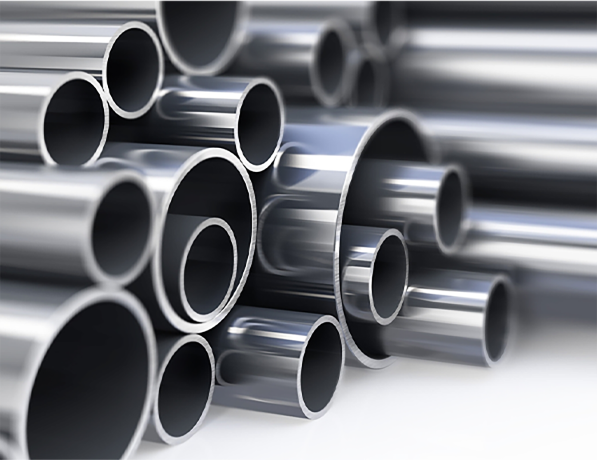Stainless Steel Tube Production Companies and Their Industry Innovations
Nov . 10, 2024 04:07
The Evolution and Importance of Stainless Steel Tubing Manufacturers
Stainless steel tubing is an essential component in various industries, including construction, automotive, aerospace, and medical fields. Due to its durability, resistance to corrosion, and aesthetic appeal, stainless steel has become the preferred material for tubing in critical applications. In this article, we will explore the role of stainless steel tubing manufacturers, the processes involved in production, and the impact they have on modern industry.
Understanding Stainless Steel Tubing
Stainless steel tubing is made from an alloy that primarily contains iron, chromium, and other elements such as nickel and molybdenum. This unique composition grants stainless steel its well-known resistance to rust and staining, making it suitable for environments where exposure to moisture or corrosive substances is a concern. Tubing can be produced in various shapes, including round, square, and rectangular, and is available in different grades depending on the application requirements.
Key Manufacturing Processes
Stainless steel tubing manufacturers engage in several specialized processes to create high-quality products. The primary manufacturing techniques include
1. Extrusion In this process, a heated billet of stainless steel is forced through a die to create seamless tubing. This method allows for precise control over the dimensions and thickness of the tubing.
2. Welding For manufacturers producing welded stainless steel tubing, flat sheets or strips are shaped into tubes, and the edges are welded together. Different welding techniques, including TIG (Tungsten Inert Gas) and MIG (Metal Inert Gas), are employed depending on the specifications.
3. Cold Drawn Tubing This technique involves drawing the tubing through a die at room temperature. It increases strength and improves surface finish, making it ideal for high-precision applications such as medical devices and aerospace components.
stainless steel tubing manufacturers
4. Annealing This thermal treatment softens the material and enhances its corrosion resistance. Annealing is a critical step that ensures that the final product meets industry standards for toughness and malleability.
Quality Control and Standards
Quality assurance is paramount in the stainless steel tubing manufacturing process. Manufacturers must adhere to strict industry standards and regulations to ensure safety and reliability. Certifications such as ISO 9001 and ASTM standards are commonly pursued to demonstrate commitment to quality. Manufacturers utilize advanced testing methods, including hydrostatic testing, ultrasonic testing, and eddy current testing, to assess the integrity and performance of the tubing.
Applications Across Industries
Stainless steel tubing is utilized across multiple sectors due to its versatile properties. In the automotive industry, it is used for exhaust systems, fuel lines, and hydraulic lines, where durability and corrosion resistance are crucial. In the medical field, stainless steel tubing is essential for surgical instruments, implants, and diagnostic equipment, distancing patient safety and adherence to strict sanitary standards.
The aerospace sector relies heavily on high-strength stainless steel tubing for structural components and fuel systems. Additionally, the construction industry often uses stainless steel tubing for handrails, scaffolding, and structural frameworks due to its combination of strength and aesthetic appeal.
The Future of Stainless Steel Tubing Manufacturing
As industries evolve, stainless steel tubing manufacturers must adapt to changing demands and technological advancements. The rise of automation and advanced manufacturing technologies, such as 3D printing and robotic welding, is setting a new standard for efficiency and precision. Sustainability initiatives are also gaining traction, with manufacturers exploring eco-friendly practices and materials to reduce their environmental impact.
In conclusion, stainless steel tubing manufacturers play a vital role in supplying industries with high-quality, durable products that meet stringent operational demands. As technology progresses and market needs shift, these manufacturers must remain at the forefront of innovation and quality assurance, ensuring the continued advancement and reliability of stainless steel tubing in multiple applications.
 Afrikaans
Afrikaans  Albanian
Albanian  Amharic
Amharic  Arabic
Arabic  Armenian
Armenian  Azerbaijani
Azerbaijani  Basque
Basque  Belarusian
Belarusian  Bengali
Bengali  Bosnian
Bosnian  Bulgarian
Bulgarian  Catalan
Catalan  Cebuano
Cebuano  Corsican
Corsican  Croatian
Croatian  Czech
Czech  Danish
Danish  Dutch
Dutch  English
English  Esperanto
Esperanto  Estonian
Estonian  Finnish
Finnish  French
French  Frisian
Frisian  Galician
Galician  Georgian
Georgian  German
German  Greek
Greek  Gujarati
Gujarati  Haitian Creole
Haitian Creole  hausa
hausa  hawaiian
hawaiian  Hebrew
Hebrew  Hindi
Hindi  Miao
Miao  Hungarian
Hungarian  Icelandic
Icelandic  igbo
igbo  Indonesian
Indonesian  irish
irish  Italian
Italian  Japanese
Japanese  Javanese
Javanese  Kannada
Kannada  kazakh
kazakh  Khmer
Khmer  Rwandese
Rwandese  Korean
Korean  Kurdish
Kurdish  Kyrgyz
Kyrgyz  Lao
Lao  Latin
Latin  Latvian
Latvian  Lithuanian
Lithuanian  Luxembourgish
Luxembourgish  Macedonian
Macedonian  Malgashi
Malgashi  Malay
Malay  Malayalam
Malayalam  Maltese
Maltese  Maori
Maori  Marathi
Marathi  Mongolian
Mongolian  Myanmar
Myanmar  Nepali
Nepali  Norwegian
Norwegian  Norwegian
Norwegian  Occitan
Occitan  Pashto
Pashto  Persian
Persian  Polish
Polish  Portuguese
Portuguese  Punjabi
Punjabi  Romanian
Romanian  Samoan
Samoan  Scottish Gaelic
Scottish Gaelic  Serbian
Serbian  Sesotho
Sesotho  Shona
Shona  Sindhi
Sindhi  Sinhala
Sinhala  Slovak
Slovak  Slovenian
Slovenian  Somali
Somali  Spanish
Spanish  Sundanese
Sundanese  Swahili
Swahili  Swedish
Swedish  Tagalog
Tagalog  Tajik
Tajik  Tamil
Tamil  Tatar
Tatar  Telugu
Telugu  Thai
Thai  Turkish
Turkish  Turkmen
Turkmen  Ukrainian
Ukrainian  Urdu
Urdu  Uighur
Uighur  Uzbek
Uzbek  Vietnamese
Vietnamese  Welsh
Welsh  Bantu
Bantu  Yiddish
Yiddish  Yoruba
Yoruba  Zulu
Zulu 












